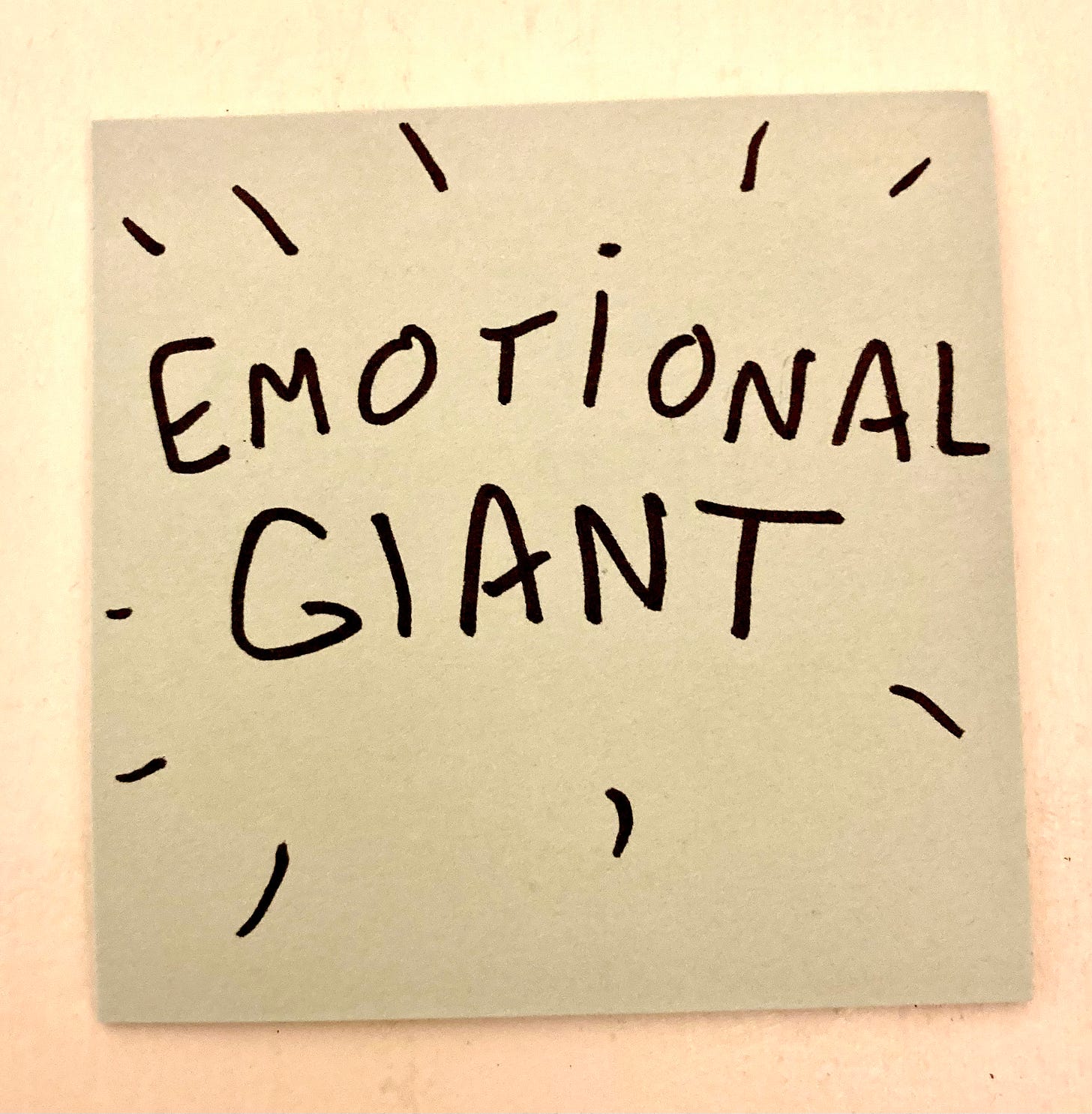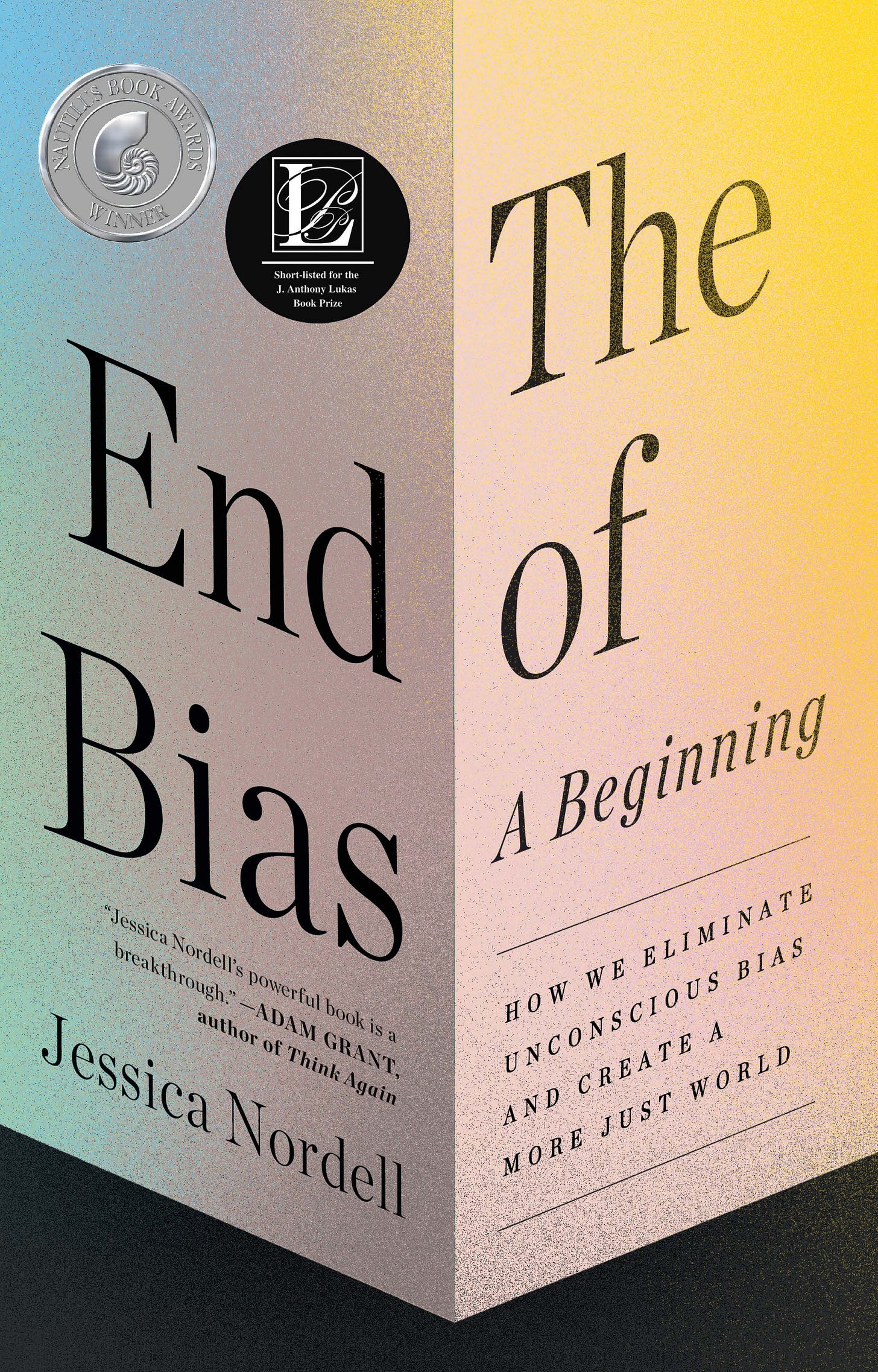Dear friends,
We made it! Here we are together, skidding and skibobbing and bouldering into the end of 2023.
I’m reading a remarkable memoir right now called Run Towards the Danger by Canadian filmmaker-screenwriter-actor-multihyphenate Sarah Polley. In it, she describes an incredible moment at a film screening in which she runs into actor and Canadian Air Force major Lucy DeCoutere.
Do you remember the Jian Ghomeshi trial? A few years before #MeToo and Harvey Weinstein, Canada went through a parallel reckoning. More than 20 women and one man shared they’d been assaulted by popular CBC broadcaster Jian Ghomeshi. Lucy DeCoutere was the first to publicly identify herself. But only three women ultimately testified in court, and the other two maintained anonymity. During the trial, DeCoutere endured mockery and humiliation, her trauma-splintered memory inconsistencies seen as evidence of “lying.” Ghomeshi was found “not guilty.” (One contributing factor: two of the women had exchanged supportive messages before the trial. This was seen as “collusion.”)
Here’s where Polley comes in. She had been violently assaulted by Ghomeshi when she was 16 and he was 28, she writes, but she never came forward. She’d wanted to back the other women, but she didn’t feel strong enough to endure what would follow. When she runs into DeCoutere at the screening, DeCoutere reveals she knows what happened to Polley, which means she also knows that Polley had not come forward to support her.
“Lucy is an emotional giant.”
Polley tries to explain: she had been warned it would ruin her life, she’d been told that many women who go through a trial like this come close to suicide. DeCoutere tears up and says, “That is exactly what did happen. And no one prepared me for that. I’m only happy for the women who didn’t come forward.” Then she gives Polley the biggest hug and says, “I’m so sorry that happened to you.”
When Polley relates this encounter to a mutual friend, the friend says, “Lucy is an emotional giant.”
Emotional giant.
These are two words I’d never seen put together before. “Intellectual giant,” yes. “Giant of industry.” “Giant of American letters.” “Giant of one’s field.” “Emotional giant”? No.
But what if we used those words? What if we recognized emotional mastery the way we do these other attributes? DeCoutere’s response astounds in part because it’s beyond what most of us could or would do. What if we valorized that ability—and the hard work, skill, talent, and commitment that is required to become a virtuoso of humanity? To scale the Mount Everest of empathy that Lucy DeCoutere did?
I realized, reading those two words, that this is what I’m trying to do with this newsletter. I’m trying to make the case that emotional wisdom is as critical, as powerful, and as deserving of wonder and celebration as any other human capacity. That we all have the capability to develop that wisdom. And that it enriches our lives immeasurably when we do.
Here are 8 insights from this past year of conversations that have stayed with me, as I skid and skibob and boulder along my own journey toward that wisdom. I’m so grateful to be on it with you.
1. There are four things we must say before we die.
Brenda Hartman, a therapist who works with end-of-life patients, shared the 4 statements we must say to our loved ones at the very end:
Please forgive me.
I forgive you.
I’m going to miss you.
I love you.
This, Hartman says, is how we recognize each other as human. “We hang on to hurtful exchanges with people,” she says, “but we have a chance to have some resolution of that and really express our humanity with one another.”
(From ”The 4 Things You Must Say Before You Die.” This was the top interview of the year! More than 5000 of you read and shared Brenda’s words.)
2. A true apology can heal both parties.
DJ Cashmere— a White former teacher haunted by his years in a “no excuses” Chicago charter school— returned to apologize to his former students. One student said, "This has been a thousand pounds on my shoulders, and talking through this with you today, that weight is lifted." For Cashmere, the apologies began to heal his own regret and pain, too. In these moments, said Cashmere, “there was really mutual healing happening.”
(From “A White Teacher Asks His Former Students for Feedback”)
3. But if an apology isn’t on offer, it’s still possible to find repair within oneself.
Coming from a background of sexual abuse in her family, Dionne Ford found a way to find “a sense of reparation for myself” even without the participation of the abuser. Through writing her story, Ford achieved a sense of belonging in her own family, despite the pain of her abuse.
(From “How Do We Claim the Hard Parts of Our Past?”)
4. Curiosity opens doors that ideology slams shut.
To create a bridge to someone with whom we vehemently disagree, we need to be genuinely — not falsely—curious about their perspective. We need to make room for them. If that person feels our condescension, says Monica Guzmán, they will shut down because they will feel that “the entire conversation is a test of their survival, dignity, ability to defend themselves.” And we’ll get nowhere.
(From ”Curiosity is the Real Resistance”)
5. In fact, clinging to ideology can block our ability to live in the real world.
DJ Cashmere found that after his school’s founding “no excuses” ideology was replaced by an “antiracist” ideology, it turned out that neither fully met students’ actual needs. Says Cashmere, ”I actually think there's a way in which ideology— whether it's "no excuses" ideology or anti-racist ideology— obscures your ability to live in reality.”
(From “A White Teacher Asks His Former Students for Feedback”)
6. Curiosity also makes our relationships across differences more resilient.
To connect across class, for instance, we need to understand that class is not just about money, but about cultural values. As Barbara Jensen, scholar of working class studies, puts it, in working class culture, “it’s about belonging versus becoming”: group harmony (a strongly working class value) versus individual achievement.
Entrepreneur Kamille Richardson, who describes herself as “triply blessed” to be blind, Black and a woman, shared that the ideology of racism is so entrenched that people who are blind typically harbor the same racist thoughts and behaviors as sighted people. As she puts it, “Racism doesn’t care about your disability.”
(From ”Is Cross-Class Friendship Possible”and “How a Black, Blind Entrepreneur Thinks About Race”)
7. Honor disruptions in relationships. Screw ups are our portal to the next stage of understanding.
If we’re willing to stay with the discomfort of that disruption long enough for it to teach us what we need to learn, the upset can make room for growth. Our wounds, says V (formerly Eve Ensler), are our path to our next stage of understanding.
(From “V (formerly Eve Ensler) On Freeing Yourself from Someone Else’s Story”)
8. If we taught people how to apologize, it would change the world.
“We're all messed up,” says V. But “most of us want to try to find a way to live together with love and joy and care.” We fear apologizing, because we think it’s going to make us weak and separate. But it does the opposite. V points out that apology releases people ”from all these things that have been choking them and making them feel terrible and sick.” It connects us to others more.
I can confirm this! Earlier this year I made a wrenching apology to someone I care for. I was terrified because I thought that by admitting I’d done something wrong, I’d somehow become smaller or less worthy in their eyes. I thought my apology would take something away from my solidity. But it did the opposite. It opened up a new level of understanding between us. The person received it with grace and love. I felt unexpectedly stronger afterwards. My apology not only healed something between us, it healed something in me, too.
My year-end challenge to you: choose someone you’d like to apologize to. Decide what you want to say. (Tip: don’t add “but” or caveats to the end of the apology!) Make the apology. And let me know how it goes.
Sending wishes of healing and connection in 2024.
See you next year,
Jessica
If you’d like to support my work, please share this with others. Or pick up a copy of The End of Bias: A Beginning, which explores how people become less discriminatory and more fair, just, and humane. You can also now pledge your support for future writing (when I add more writing, more work, more options, and subscriptions!).






